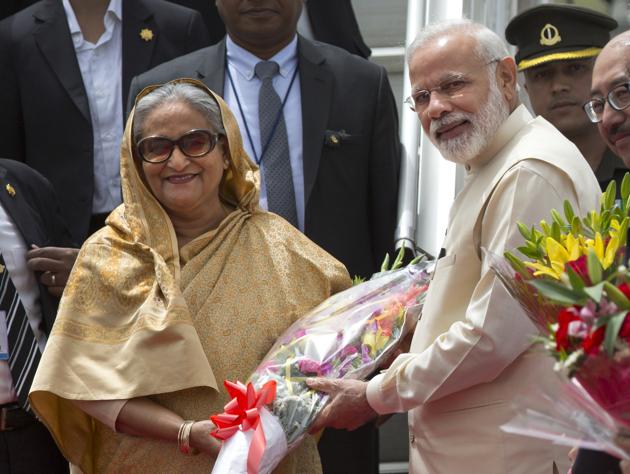by JAWED NAQVI

For India’s ruling BJP, what will Aug 5 be most remembered for? It is, of course, the day that Sheikh Hasina Wajed was deposed by a mass uprising against her authoritarian government. The ousted Bangladesh premier was perhaps a rare close ally of Prime Minister Narendra Modi in a neighbourhood where India endures persistent Sino-phobic nightmares.
Or would the day be likelier remembered as the harbinger of bad news for Kashmiris, whose special rights Modi snatched on this day through a parliamentary motion in 2019? It was, coincedentally, also the day when China growled — and the sound continues to ricochet on the Himalayan borders. China was angered by India’s move to dismember Jammu and Kashmir and set up a separate entity of Ladakh, over which Beijing disputes Delhi’s claim.
Or would Aug 5 nurture memories of the hugely televised foundation ceremony of the temple in Ayodhya, by the leader of a still notionally secular country?
Whatever be the course for historical memory, the essential thread running through the landmark events is that Modi may have missed the import of all three. He claimed his move against Kashmiris would end terrorism and bring prosperity to the region, neither of which has so far come true. He thought that his highlighting of the Ayodhya temple event would win him the election. That didn’t happen and, in fact, his third term leans on the vital support of two allies who had opposed the destruction of Babri Masjid.
Missing the imminent overthrow of his close friend, who came to applaud his swearing-in on all three occasions, must be an inconsolable blow to what seems like his waning run of luck. When Sheikh Hasina came to see him twice after his third swearing-in, Modi should have been aware of the rumblings in Dhaka, where she had won the sham January election that the opposition boycotted. If she was Modi’s prop to balance China, she was a vulnerable one.
Had Modi’s intelligence squad been focused at home rather than on chasing Sikh insurgents in distant lands, he would perhaps be in a better place to advise his friend to watch out. But diplomatic misjudgements are not Modi’s monopoly, and the malaise seems to be rooted in his ideological grooming with the habitual pro-West leaning that blinded his Hindutva forebears to the delicate needs of a world in flux, which Nehru had grasped with grace and ease.
The flight of the embattled Sheikh Hasina has echoes of the fall of the Shah of Iran for India, which again brings into stark relief the ineptness of the BJP’s parochial worldview that seeks to insert itself in the nuanced world of diplomacy. Almost like Hasina’s two quick visits to Delhi in June, the Iranian monarch is remembered for his last foreign trip, for which he chose India. He was warmly hosted by a government of which the BJP, in one of its previous avatars, was a key component, and in which A.B. Vajpayee was foreign minister.
There is screaming evidence from diplomatic history of how other foreign leaders whom this or that BJP leader embraced as some kind of diplomatic trophy would fall either to an electoral defeat, a popular uprising, or an old-fashioned coup. There’s little occult in these coincidences. If anything, they are likely rooted in the choices the BJP has made, often to court or please Washington. In doing so, the BJP ends up undermining India’s tested, honed and surefooted plank of non-aligned. In its craving for Western patronage, the party — currently offering itself as a bulwark against China — has thrown aside habits that endeared India to its neighbours and the entire Global South.
Dawn for more
